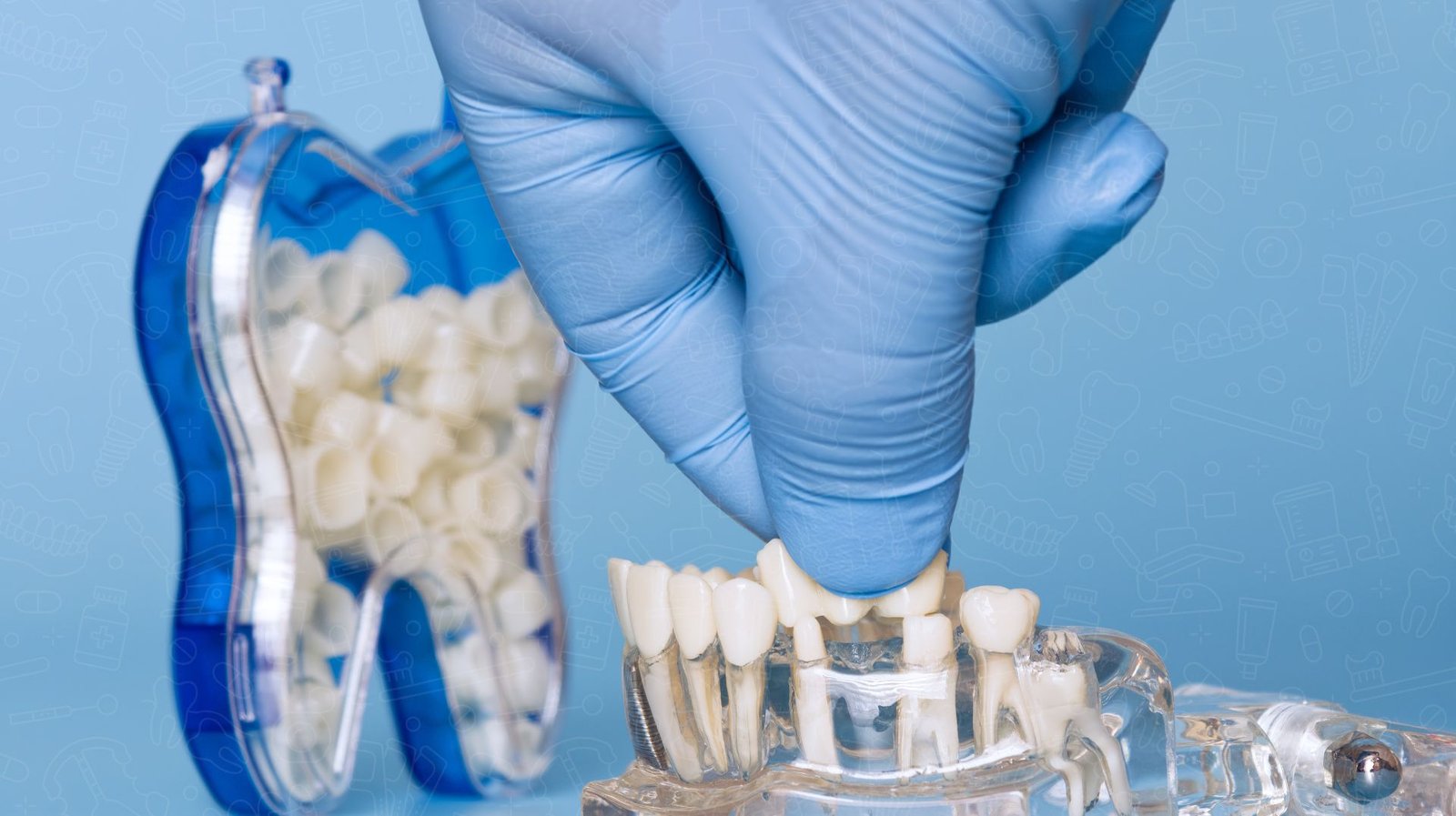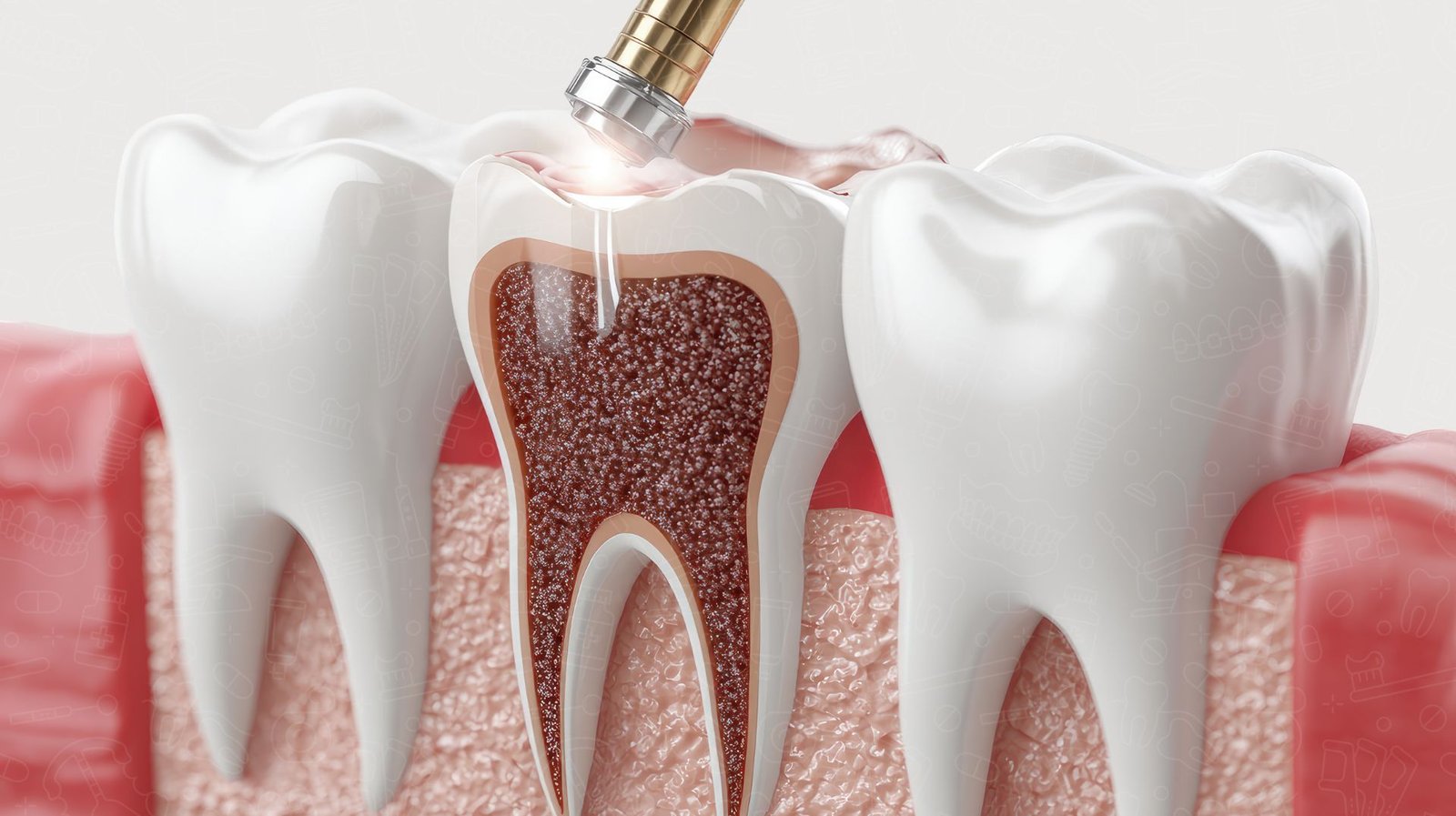Introduction to Titanium vs Zirconia Dental Implants
Dental implants are artificial tooth roots designed to support crowns, bridges, or dentures, offering a long-term solution for missing teeth. With advancements in technology, implant dentistry has gained immense popularity for its durability and natural appearance. Among the most widely used materials are titanium and zirconia—each with distinct benefits and considerations. Titanium implants boast a long-standing track record, while zirconia appeals to those seeking a metal-free option. This article explores the differences between titanium vs zirconia dental implants, helping you make an informed decision about which material best suits your oral health needs and lifestyle preferences.
What Are Dental Implants?
Dental implants are artificial tooth roots designed to support crowns, bridges, or dentures, offering a long-term solution for missing teeth. With advancements in technology, implant dentistry has gained immense popularity for its durability and natural appearance. Among the most widely used materials are titanium and zirconia—each with distinct benefits and considerations. Titanium implants boast a long-standing track record, while zirconia appeals to those seeking a metal-free option. This article explores the differences between titanium vs zirconia dental implants, helping you make an informed decision about which material best suits your oral health needs and lifestyle preferences.
Titanium Dental Implants
A. Composition and History
Titanium is a biocompatible metal known for its strength, corrosion resistance, and lightweight properties. It has been used in medical and dental applications since the 1950s. In dental implantology, titanium's ability to naturally bond with bone—a process known as osseointegration—makes it an ideal material. This fusion ensures a stable and secure foundation for dental restorations. Over the decades, titanium implants have become the gold standard, supported by extensive clinical research and long-term success rates that often exceed 95% over 10 years.
B. Advantages
One of the key benefits of titanium dental implants is their exceptional biocompatibility. The body typically accepts titanium without adverse reactions, allowing the implant to integrate seamlessly with the jawbone. This strong osseointegration leads to a highly durable solution that can last for decades with proper care.
Titanium implants are also available in two-piece systems, comprising a separate implant post and abutment. This design provides greater flexibility in terms of positioning and angulation, making them suitable for a wide range of clinical scenarios. For patients with more complex dental needs, this adaptability can significantly improve outcomes.
C. Disadvantages
Despite their many benefits, titanium implants have some drawbacks. One aesthetic concern is the possibility of the metal showing through thin or receding gums, potentially causing a greyish hue at the gum line—particularly in the front of the mouth.
Additionally, although extremely rare, some individuals may experience metal sensitivity or allergic reactions to titanium. In such cases, alternative materials like zirconia may be recommended.
When weighing titanium vs zirconia dental implants, titanium remains a reliable and time-tested option for most patients, particularly those prioritizing strength, longevity, and procedural flexibility. However, individual health factors and cosmetic goals should always guide the final decision.
Zirconia Dental Implants
A. Composition and Background
Zirconia, or zirconium dioxide, is a strong, ceramic-based material that has gained attention in modern dentistry for its durability and aesthetic appeal. Unlike titanium, zirconia is completely metal-free, making it an attractive option for patients with metal allergies or sensitivities. Although zirconia has been used in dental crowns and bridges for years, its application as a dental implant material is relatively recent. As such, zirconia implants are still considered new in the field, with emerging but promising clinical data supporting their success.
B. Advantages
One of the most notable benefits of zirconia implants is that they are metal-free and hypoallergenic, making them ideal for patients who prefer biocompatible, non-metallic materials or have concerns about metal exposure. This characteristic eliminates the risk of allergic reactions and promotes better overall tissue compatibility.
Zirconia also offers superior aesthetics. Its natural white color closely resembles that of real teeth, eliminating the risk of grey gum lines often associated with titanium implants. This makes zirconia especially suitable for implants in the visible front teeth region.
Another advantage is its resistance to plaque accumulation. Zirconia surfaces tend to repel bacteria, reducing the risk of inflammation or peri-implantitis, which supports long-term gum health.
C. Disadvantages
Despite its benefits, zirconia implants come with certain limitations. Being relatively new, they lack extensive long-term clinical data compared to titanium. This means that while early results are promising, their durability over several decades remains under evaluation.
Zirconia implants are often available in one-piece systems, where the implant and abutment are fused together. This design can limit flexibility in placement and angulation, potentially making complex cases more challenging.
Additionally, although zirconia is strong, it is more brittle than titanium, and under extreme stress or improper load distribution, it can fracture.
When comparing titanium vs zirconia dental implants, zirconia is a compelling option for patients prioritizing aesthetics and metal-free restorations, though considerations around flexibility and longevity remain crucial in treatment planning.
Titanium vs Zirconia Dental Implants: Head-to-Head Comparison
| Feature | Titanium | Zirconia |
|---|---|---|
| Material Type | Metal | Ceramic |
| Durability | Proven long-term | Good but less data |
| Aesthetics | May show through gums | Tooth-colored |
| Biocompatibility | Excellent | Excellent |
| Flexibility | Two-piece options | Mostly one-piece |
| Risk of Fracture | Low | Higher (in some cases) |
| Allergy Risk | Rare metal sensitivity | None (metal-free) |
Factors to Consider When Choosing Titanium vs Zirconia Dental Implants
When deciding between titanium vs zirconia dental implants, several important factors should guide your choice to ensure optimal long-term results and satisfaction.
Gum Type and Aesthetic Needs
The visibility of the implant plays a key role in material selection. Patients with thin or translucent gums may prefer zirconia implants, as their tooth-colored appearance prevents grey discoloration at the gum line. For implants in the front of the mouth, zirconia is often favored for superior aesthetics.
Medical History (Allergies and Sensitivities)
Titanium is biocompatible and well-tolerated by most patients, but rare cases of metal allergies or sensitivities do occur. If you have a history of allergic reactions to metals or prefer to avoid metals altogether, zirconia is a hypoallergenic, metal-free alternative that reduces such risks.
Jawbone Condition and Implant Site
Titanium implants offer greater flexibility due to their two-piece design, making them more suitable for complex placements or limited bone density. Zirconia implants, typically available in one-piece designs, may require more ideal bone conditions and precise placement.
Dentist’s Recommendation and Expertise
Your dentist’s experience with either material is crucial. Titanium implants have been used for decades and are widely supported by clinical research. Not all dental professionals are equally trained in zirconia implants, so selecting a practitioner with experience in your chosen material is essential.
Personal Values and Preferences
Patients seeking holistic or metal-free dentistry often choose zirconia for its biocompatibility and natural appearance. Those prioritizing strength, long-term performance, and treatment flexibility may lean toward titanium.
In summary, the decision between titanium vs zirconia dental implants should be based on your unique anatomy, health profile, and personal values—guided by a knowledgeable dental professional who can tailor the solution to your needs.
Titanium vs Zirconia Dental Implants: Which Is Right for You?
Choosing between titanium vs zirconia dental implants depends on several personal and clinical factors. Each material has distinct benefits, making them suitable for different patient profiles.
Titanium implants are ideal for individuals seeking a long-term, proven solution. They are especially well-suited for patients with complex dental needs, limited jawbone density, or those requiring customized angulation due to their two-piece design. Titanium’s decades-long track record, superior durability, and high success rates make it a preferred option for most implant procedures.
On the other hand, zirconia implants are ideal for patients who prioritize aesthetics, especially in visible areas of the mouth, or those who prefer a metal-free, holistic approach. They are also recommended for individuals with known metal sensitivities or allergies. The ceramic, tooth-colored appearance of zirconia helps ensure a seamless blend with natural teeth and gums, reducing the risk of visible dark lines near the gum line.
Ultimately, the best way to determine which material suits you is through a personalized consultation with a dental professional. Your dentist will evaluate your gum type, bone condition, medical history, and aesthetic preferences before recommending the most appropriate option.
Whether you choose titanium or zirconia, both implant types can offer excellent results when selected and placed carefully. The key to success lies in aligning the material choice with your unique dental needs and long-term goals—making the debate between titanium vs zirconia dental implants a decision best made with expert guidance.
Conclusion to Titanium vs Zirconia Dental Implants
In conclusion, understanding the differences between titanium vs zirconia dental implants is essential when choosing the right solution for your smile. Titanium offers unmatched durability, long-term clinical success, and greater flexibility in treatment. Zirconia, meanwhile, provides superior aesthetics and a metal-free, hypoallergenic alternative. Each material caters to specific needs, whether it's strength and adaptability or visual harmony and biocompatibility.
Since every patient’s oral health, anatomy, and preferences are unique, it’s important to consult with a trusted implant dentist. They can assess your individual situation and guide you toward the most suitable option.
Ready to take the next step? Book a personalized consultation today to explore whether titanium or zirconia dental implants are right for you.





